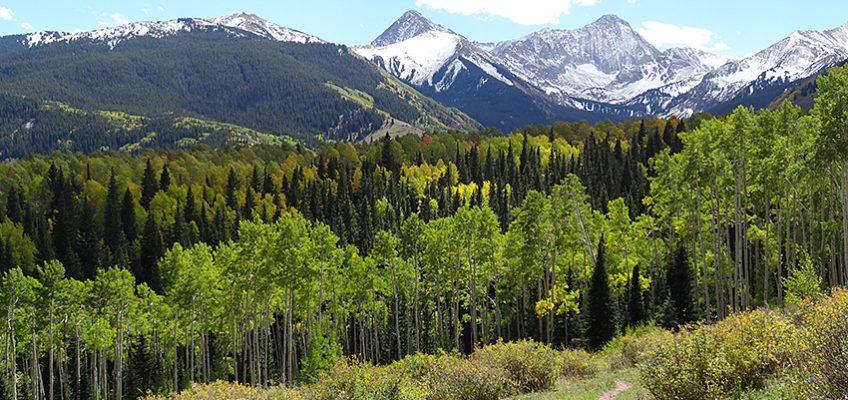
As a hunter, angler and American citizen, I am an owner of our vast public lands and waters and, therefore, must take responsibility for their management and preservation.
Long before I knew the joys of public lands, I’d accompany my father to town meetings, a New England tradition since the 17th century in which voters come together to deal with local business. While I often rolled my eyes and complained of boredom, my father tirelessly engrained in me the duty of a citizen through both political and non-political means. I didn’t know it then, but at the age of 6, I already was participating in democracy. Civic engagement, my father told me, is easy. You do it through volunteering, voting, attending public meetings and contacting electing officials.
In college, I was introduced to public lands and waters on a Western scale. I was rapidly consumed by the bounty these places had to offer and quickly connected the dots between civic duty and these public resources.
Do you want to become active and engage your civic duty to protect our public lands? Here are some ways to get started…
Volunteer with an Advocacy Group
Signing petitions, doing habitat restoration, donating funds, serving on a chapter board. The important part is that engaging with BHA allows you to be an informed public lands advocate. Your participation and contribution helps BHA be more effective at what we do. Volunteering for causes that matter to you is a great first step toward civic engagement.
Spread the Word
With everything going on in the world of late, many Americans are simply unaware of the conservation and public lands issues we sportsmen and women care so much about. It’s a lot to take in. Use your knowledge and passion to inform your fellow citizens. Tell people what public lands and waters mean to you. We may need their votes someday.
Contact Your Decision Makers
Contacting politicians and officials can seem intimidating, but remember, they work for YOU!
They will work for you even more if they know who you are. Particularly at the state and local levels, it’s great to start by building a relationship with key decision makers through in-person meetings in their home districts. In addition to one-on-one communication, there are many ways to contact elected officials: social media, email, letters and on the phone.
Not all forms of communication are equal and not all officials are active on Twitter or Facebook. Comments on social media, emails, even letters can be easy to ignore. That said, some elected officials are increasingly using social media to take the pulse of the American public on important issues. Just last year, former Congressman Jason Chaffetz announced his bill H.R. 621, which would have mandated the sale of 3 million acres of public lands, on Instagram. He was quickly inundated with a tidal wave of negative social media response and announced, on Instagram, just a week later that he was pulling the bill.
But a phone call to an office is always a good way to go. Members of Congress generally equate a phone call to represent 100 people, so just 10 phone calls represent the voices of 1,000 voters. The staff of your representative or senator keeps a tally of the number of phone calls they receive regarding which issues and report those constituent opinions to the member of congress regularly.
Here’s how you do it…
- Find out who your elected officials are and how to contact them are by visiting the directory section of BHA’s Take Action webpage here: backcountryhunters.org/take_action
- If calling a state or local representative, you may be able to talk directly with that person, whereas if calling your member of Congress, a staff member will answer or you’ll get an answering machine. Keep it short and simple:
“Hi, I’m (state your name) and I’m a voter in (your state and district). I wanted to ask the (congressman or woman) to support full funding and permanent reauthorization of the Land and Water Conservation Fund. Over the last 50 years, the LWCF has been one of the most effective and popular conservation programs ever, providing access to the outdoors for tens of millions of Americans. Don’t let it die!”
Power of the Press
The press is so important to our democracy that it is explicitly protected in the First Amendment of the Constitution. Media is an important tool to influence and educate elected officials, agencies and fellow citizens.
BHA state chapters frequently publish letters to the editor (LTEs) and opinion-editorials (op-eds) regarding state and local issues. This is a way to elevate our voice and share our views with a wider audience. If you want to pen an opinion article about an issue on behalf of BHA, reach out to Tim Brass, our state policy director, or Katie McKalip, our communications director.
Attend Public Meetings and Submit Comments
When people think of politics, they often think of Washington, D.C. and the federal government. It’s important to remember the vast importance of local governments, as well as federal agencies like the Bureau of Land Management, U.S. Forest Service, National Park Service, U.S. Fish and Wildlife Service that have regional offices run by local people. They might even be your neighbors, and they care about the same places and wildlife you care about. Remember that when you’re talking to them.
All the agencies above, as well as state and local governments and state fish and game commissions and departments, frequently hold public meetings and allow public comment on management plans, changes in hunting and fishing regulations and other issues conservationists care about. A great way to make your voice heard is to attend these meetings and share your thoughts.
BHA chapters have developed systems for ensuring the chapter is represented at the local level, such as the Habitat Watch Volunteer Programs, where individual members are responsible for the respective land management agency on the chapter’s behalf. Some chapters have developed regional committees with dedicated representatives in place to make sure each fish and game district has a BHA representative responsible for engaging on local issues.
When submitting comments in person or through writing, remember that even though you might not have a Ph.D. in biology, your personal experiences are valid. Use your stories to inform your comments. Don’t be overly emotional, but rather use emotions effectively to appeal to the compassion of decision makers. Be concise and respectful in your comments.
Vote
Going to the ballot box is one of the easiest ways to effect change. First, inform yourself on various candidates’ stances on conservation issues. This can be done by calling the offices of candidates and asking simple, indicator questions such as, “Do you support the sale of federal public lands?” Make sure you listen carefully and do other forms of research to corroborate the response. Look for articles in the opinion section of your local newspaper about candidates and see what advocacy groups you trust have to say. After you do all this, make sure you cast your ballot. And if you don’t like the options, you can always run!
A version of this article appeared in the Spring 2018 issue of Backcountry Hunters & Anglers’ Backcountry Journal. To learn more about BHA visit www.backcountryhunters.org
 Sawyer Connelly works as the campus outreach coordinator for Backcountry Hunters & Anglers and is a strong believer in civic duty. Growing up on the East coast, it wasn’t until his time in college that he came West and fell in love with the indomitable western landscape and the creatures that call it home. During his time in college he spent time studying large landscape conservation and learning the humbling art of hunting elk on public lands. When not at the BHA office he enjoys exploring Montana’s bountiful public lands and waters with his German Shorthair and friends.
Sawyer Connelly works as the campus outreach coordinator for Backcountry Hunters & Anglers and is a strong believer in civic duty. Growing up on the East coast, it wasn’t until his time in college that he came West and fell in love with the indomitable western landscape and the creatures that call it home. During his time in college he spent time studying large landscape conservation and learning the humbling art of hunting elk on public lands. When not at the BHA office he enjoys exploring Montana’s bountiful public lands and waters with his German Shorthair and friends.
